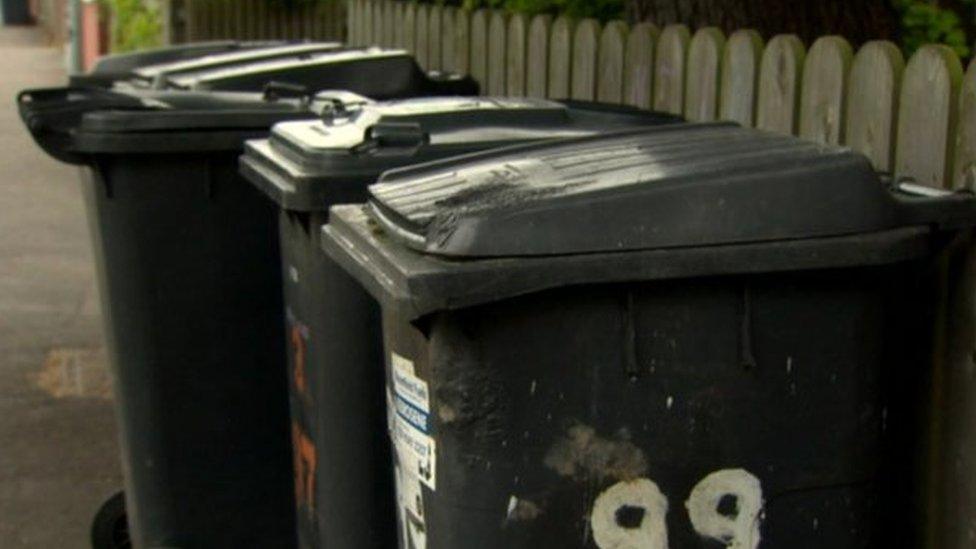Derry City and Strabane Council raise rates by 7.97%
- Published

The rates rise was met with opposition from several councillors following a meeting on Monday
Derry City and Strabane District Council have agreed to increase household rates by 7.97%.
The average rates bill will increase by £40.74 per annum or 78p per week.
The rates rise was met with opposition from several councillors following a meeting on Monday.
Mid and East Antrim District Council also agreed to set its rate increase on Monday at 5.43%, meaning average bills will rise by £27.35 per year.
Business rates within the area will rise by 5.9%, which would equate to a rise of £387 per year on the average value of business premises.
On Monday evening, Antrim and Newtownabbey Borough Council agreed to increase its rates by 4.9%.
It says this equates to an increase of less than 40p per week.
'Driving austerity'
Councillor Paul Gallagher, who sits on Derry City and Strabane District Council, described the increase in his area as "driving austerity on the people of this district who are facing great hardship".
In Belfast rates will rise by 7.99%.
The money generated by rates is used to pay for public services, with bills decided against the value of a property.
The proposal to increase rates in the Derry and Strabane area was put forward by Alliance councillor Phillip McKinney and seconded by Sinn Féin councillor Christopher Jackson.
Mr Jackson said the council was facing significant financial pressures and added that local councils were unable to avail of support packages they had benefitted from in the past due to the lack of an executive.

The money generated by rates is used to pay for public services
Alliance councillor Rachel Ferguson said setting the rate had been an "extremely difficult process".
"We struggled to get this rate down as low as possible but there are some in this chamber who say we should have opted for a zero percent rate but that would have put our services and everyone employed at our council at risk."
UUP Alderman Darren Guy said nobody wanted to see an increase.
"We would all like to see it at zero but when you go that low you are affecting people's jobs," he added.
The council had also agreed to make cutbacks of over £3.5m due to financial pressures, including voluntary severance, an increase in off street car parking charges and reductions in street cleansing and grounds maintenance services.
The council added that, despite challenges, it has made budgetary provision of £90m in community projects including the development of the Brandywell Sports Centre and Daisyfield pitches supported by funding from the UK Government Levelling Up Fund.
It added that provision had also been made for the development of a new cemetery for the west bank of the city.
How are rates set?
Domestic rates are made up of a regional rate - usually set by the Northern Ireland Assembly - and a district rate set by Northern Ireland's councils.
In the absence of a sitting assembly at Stormont, the UK government's Northern Ireland Office (NIO) will set the regional rate.
BBC News NI understands that a regional rate increase will be struck ahead of bills being sent out in April.
The regional rate covers services like hospitals and roads maintenance, while the district rate covers services like leisure centre facilities and waste management.
Other councils are expected to announce their 2023-24 rates in the coming weeks.
- Published7 February 2023

- Published2 February 2023

- Published18 January 2023
